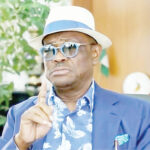One year since a N146m 60 kilowatts (kw) grid-connected solar power plant in Torankawa community of Sokoto State was commissioned, residents say they have had sustained power supply.
Torankawa, with a population of about 9,000 was thrown into darkness for almost seven years until 2019 which came with a sunny side for them.
The pilot project, commissioned February 12 last year, was to provide uninterrupted electricity supply to 350 homes with 1,750 people benefitting, as well as 20 small businesses, five mosques, community irrigating farms, and 50 streetlights.
The project, handled by Protogy Global Services, is said to be the first of its kind in Nigeria that is connected to the national grid.
“We are overwhelmed that after years of living in darkness, our community, Torankawa in Yabo local government, is now enjoying regular electricity supply. We were in total darkness due to a high concentration of wind in the area which easily disrupted all efforts to connect us to the national grid,” the District Head of Torankawa, Alhaji Umar Riskuwa, said.
“We are also grateful to Sokoto State Government for providing the land for the establishment of the project and all necessary support for its success,” he added.
Some members of the community who are engaged in businesses requiring electricity spoke on the impact of the initiative. “Before the solar project, I used to buy N400 fuel daily for the generator that powered my refrigerator. Now with N1,000 electricity unit, it can last seven days which enabled me to have more profit and regular customers,” Kasimu Yahya, 20, a shop owner said.
A phone battery charger, Faruk Sahabi, 25, said: “Due to high demand, I used to buy N5,000 worth of fuel to charge batteries daily from which I hardly get N500. But now with N1000 worth of units, I can spend a week on electricity supply and get N2,000 on a good day or N1,000 when I record low patronage.”
Faruk said on ‘dark’ days; he sometimes had to travel to Sanyinna town to buy fuel. “Now electricity is easy to get provided you have units.”
Relating his experience, Muhammadu Aliyu, a welder said: “I used to operate skeletal services even though there was the demand in the village. People need items such as gates; others mend their broken farm implements, motorcycle parts. But these things demand uninterrupted electricity which we lacked for seven years.
“The coming of this solar project has boosted our businesses and enhanced our livelihoods,” he noted.
On the cost, he recalled: “Before the project, I spent N5,000 to N7,000 to fuel my generator, but now with N1,500-unit card, I can do a lot of work and earn enough to feed my family.”
At the project site, Zahradden Abubakar and Hassan Musa Salah said they were trained in the techniques needed for effective and efficient service delivery.
“We use 192 panels to provide 60kw of electricity to designated 200 households and commercial places in Torankawa village. So far, we are not encountering any problem as a result of operating in a windy environment,” Abubakar noted.
They said the necessary components such as inverters and storage sections were in good condition and providing noticeable results.
They, however, said there was a drop in sales of the units’ cards following the harmattan season.
“Before this season, we made N5000-N7,000 daily, now it is just N1,500 daily. Monthly, we used to sell N150,000 worth, but now it has dropped to N80,000.”
The councillor representing the area at Yabo LGA, Shehu Nahantsi, underscored the positive impact the solar project has had on the community.
He recalled that during the last Ramadan period, people from various communities, including Sayinna town and environs, trooped to Torankawa for ice blocks. “This was quite remarkable,” he said.
The village head of Torankawa (Lelaba) Muhammadu Moyibo, 60, said after the elevation of Torankawa to district status, the solar project was a major achievement recorded in the area.
According to him, the success of the project attracted officials from Imo and Edo states who wanted to execute the same initiative in their areas. “They came here and said they wanted to learn about the solar project, which is unique, successful story,” he revealed.
In July 2017, the ministry initiated the first REMU mini-grid project in a small rural village of Pakau in Kaduna State. Our reporters visited the village in October and found that the plant, similar to Torankawa’s, had stopped operation.
Responding to the issues, the Director of Renewables and Rural Power Access in the ministry, Engr. Faruk Yusuf, said the active Torankawa project was a pilot project that has demonstrated the commercial viability and called on investors for more of such mini grids to solve rural power access challenges.
Yusuf confirmed challenges with the Pakau mini grid plant. As a solution, he said, the ministry was doing procurement for concessioning of three mini grids – the Pakau and Gnami solar grids in Kaduna and the Torankawa in Sokoto State.
He said, “We believe that this will help for better management and hopefully before the end of the first quarter of 2020, that will be completed.”
“That would take care of the challenges at Pakau mini grid because an operator resides in the community to monitor the project and have the residents pay for the energy,” he noted.

 Join Daily Trust WhatsApp Community For Quick Access To News and Happenings Around You.
Join Daily Trust WhatsApp Community For Quick Access To News and Happenings Around You.


